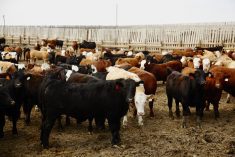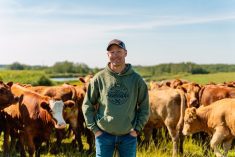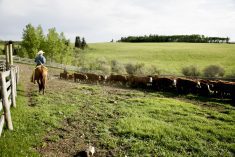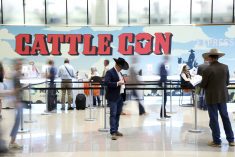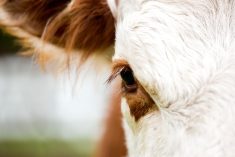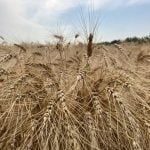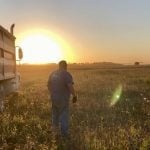Editor’s Note: On. Dec. 2, 2022, Reg Schellenberg passed away suddenly. This column was written and sent to the printer prior to his passing. It reflects many of his priorities and concerns as Canadian Cattle Association president and highlights the issues he and his colleagues at the association dealt with in recent months — and in some cases, on an ongoing basis.
Reg will be widely remembered for his years of service and leadership on several beef industry boards, his concern for the next generation of beef farmers and ranchers and his untiring advocacy for an industry he was passionate about. His untimely death is a huge loss for the entire industry, as well as his loved ones. From all of us at Canadian Cattlemen, our condolences to Reg’s family, friends and colleagues.
Read Also
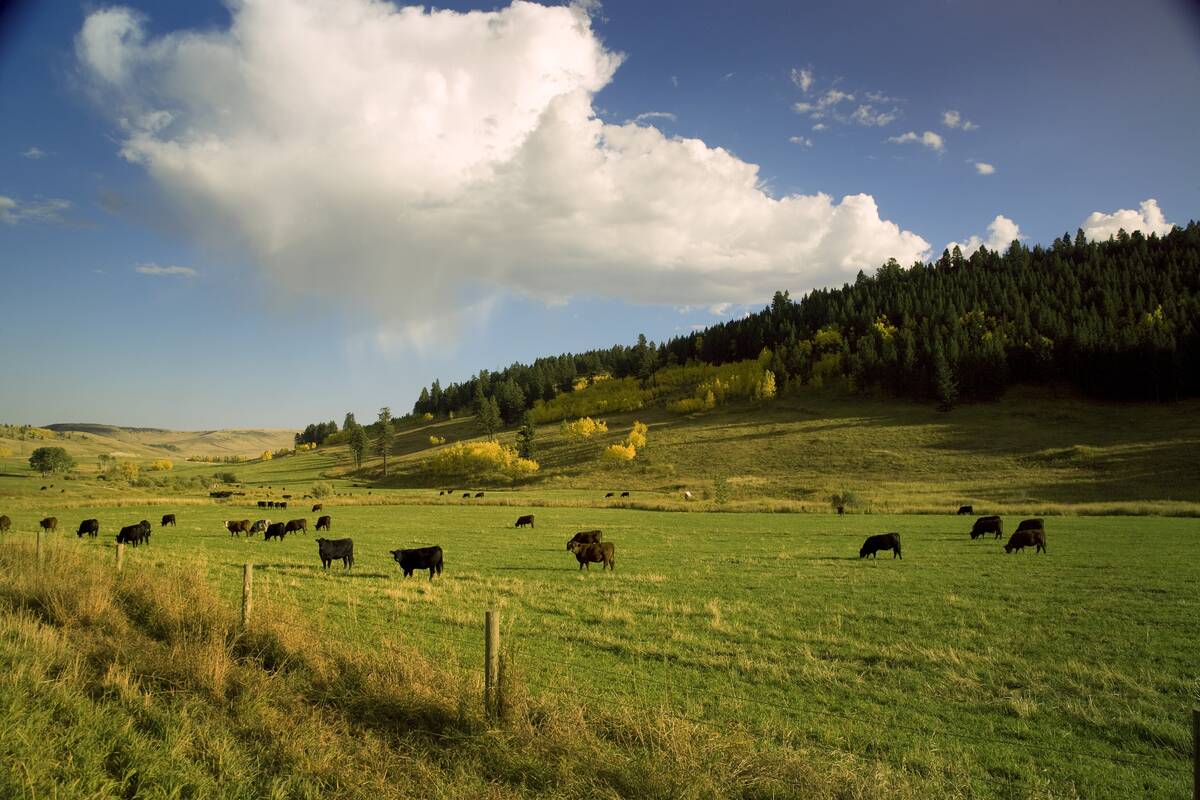
The Canadian Cattle Association’s international advocacy efforts
Global ag policies affect Canadian food policy, so the Canadian Cattle Association participates in international and domestic forums
It has been a busy year for the Canadian Cattle Association (CCA), and I am grateful for the opportunity to serve as president of an organization with such a strong and impactful history. Over the past 90 years, CCA has continued the tradition of representing the interests of Canadian cattle producers and overcoming challenges to build a strong, vibrant industry to pass on to the next generation — and this still holds true today. With 2022 marking a significant milestone in our history, we are releasing a series of short videos in the new year highlighting our defining moments.
Over the past year, CCA board members and staff remained committed to moving forward on key policy priorities, addressing the pressing issues facing our industry and sharing our positive sustainability story at home and on the world stage.
This past spring, it was all hands on deck at CCA when it came to engaging members of Parliament (MPs), senators, officials at Health Canada and consumers on the proposed regulatory change that would have seen a warning label for saturated fat placed on ground beef. We are humbled by the strong support that we received from Canadians, who sent thousands of letters to MPs across the country. In the process, we established an important connection on the nutritional value of beef in kitchens from coast to coast to coast. This initiative was truly a #teambeef effort and a win for the entire industry!
The impacts of adverse weather — drought to flooding to Hurricane Fiona — remain top of mind at CCA. Following the announcement of the initial regions eligible for the Livestock Tax Deferral provision in late summer, we continue engaging with the federal government to ensure all affected producers are included.
[RELATED] Joining the global conversation on climate change
With winter now upon some of us, there is an urgency in the Maritimes to rebuild fences, barns and infrastructure for livestock, including cattle. We share in the frustration with the timelines for the rollout of much-needed support in the region and our thoughts remain with the families impacted. With the federal government announcing $1 billion in Hurricane Fiona relief, CCA is working to ensure these funds can help support affected cattle producers.
Going into 2023, CCA’s board and staff will continue engaging with parliamentarians and department officials. We are monitoring developments concerning the rollout of the Sustainable Canadian Agricultural Partnership (Sustainable CAP), with our attention focused on enhancements to the business risk management (BRM) program suite and actively participating in the consultation process with industry on the review of the AgriStability program. We are pushing back on adding an environmental objective to BRM programming as this will inevitably increase the complexity of already complicated programs.
The 25 per cent increase to the funding envelope for research and innovation was welcome news. Our advocacy efforts on this front focus on support for research programs aimed not only at key environmental challenges but also enhancing productivity. This is a key ingredient to the success and sustainability of our sector.
[RELATED] CCA heads to the Hill as Parliament resumes
Our attention is also on efforts to protect Canada from the threat of foot-and-mouth disease (FMD), which requires constant vigilance. We continue to build on our advocacy efforts for the establishment of a Canadian vaccine bank. This is a key part of our preparedness plan to help mitigate losses to the Canadian beef industry and our economy if FMD were ever to occur in Canada.
In the current discussion about the environment, specifically around sustainability and climate, cattle are an important consideration. Raising cattle in Canada does so much good for our environmental landscape — from protecting native grasslands to enhancing biodiversity to improving water and soil quality.
To share the efforts undertaken by our industry, CCA has initiated a digital campaign to showcase the great work cattle producers are doing across the country. The campaign is aimed at connecting with policy leaders, consumers and participants of the global climate conference, COP27. We are proud to share our story. If we don’t tell our story, we know someone else will.
In Canada, raising cattle is part of the climate change solution and CCA is taking a leadership role in sharing our sustainability story with the federal government. We are beginning to see the needle move as our sustainable production practices are now referenced in government publications, including “Faster and Further: Canada’s Methane Strategy.” We will continue sharing our story and updates on the status of our 2030 beef goals with Parliamentarians and department officials.
Representatives from CCA have also been on the ground and active participants in conversations happening globally about the environment, food insecurity, climate change and biodiversity. CCA was pleased to represent the Canadian beef industry at COP27 in Egypt in both our own delegation and joining the Government of Canada’s delegation.
Bob Lowe, CCA’s past president and Mitchell Zoratti, CCA’s environment and climate change co-ordinator, highlighted our leadership and experience in sustainable cattle production as speakers at the conference. We are also proud that our short film, Guardians of the Grasslands, was featured at the Canadian government’s pavilion.
We also had the opportunity to participate in the COP15 hosted by China in Montreal, which focused on biodiversity. It was a venue to highlight the role that working grazing landscapes in Canada play in carbon sequestration and biodiversity and our leadership on this issue.
You can count on us to be at the table representing your interests and ensuring the best outcome possible for cattle producers across Canada, whether it is at home or on the international stage. CCA needs to be a part of these conversations to ensure that an accurate perspective of sustainable beef production is considered in these important policy discussions.
From all of us at CCA, Merry Christmas! May you be surrounded by loved ones during this Christmas season!



